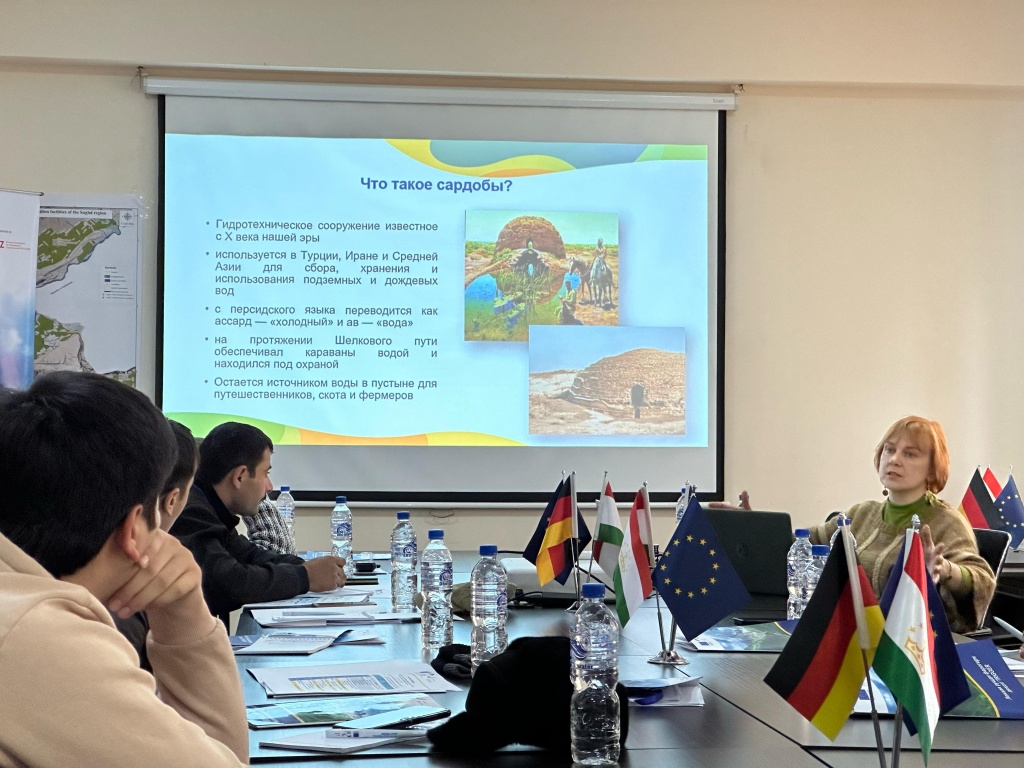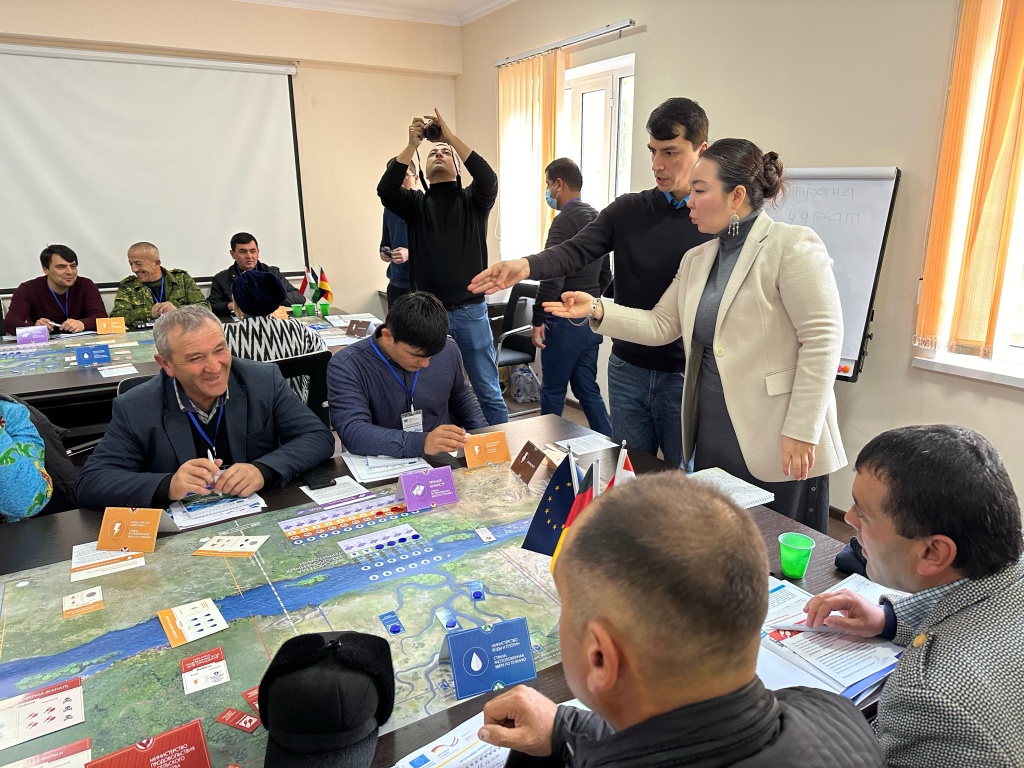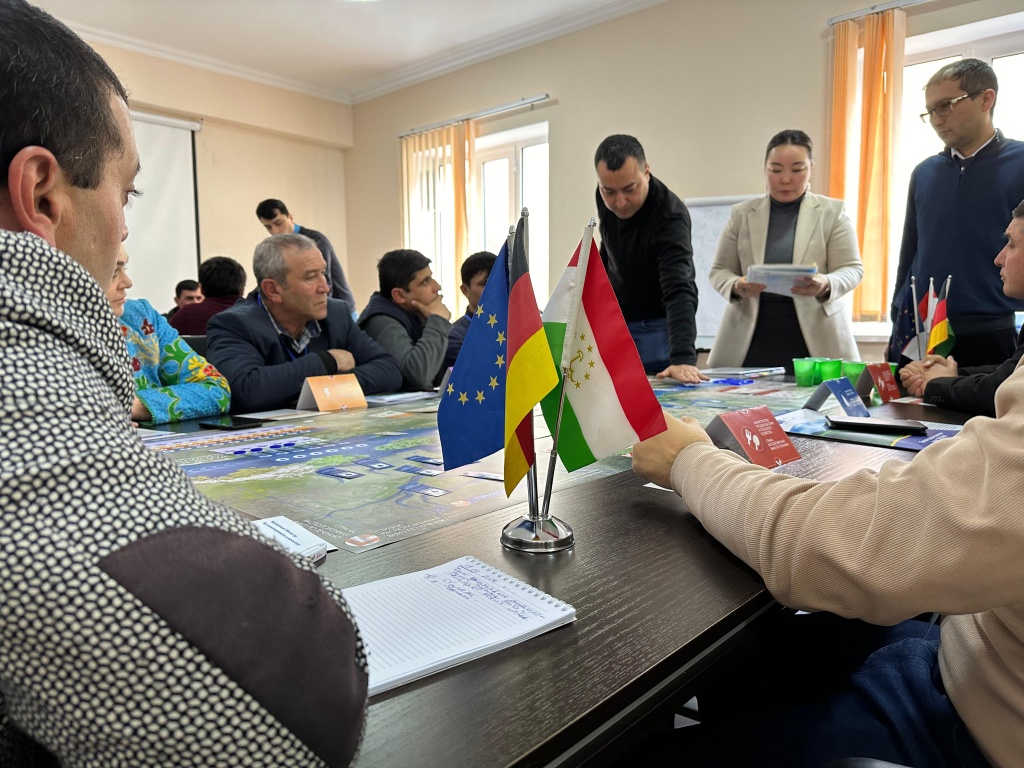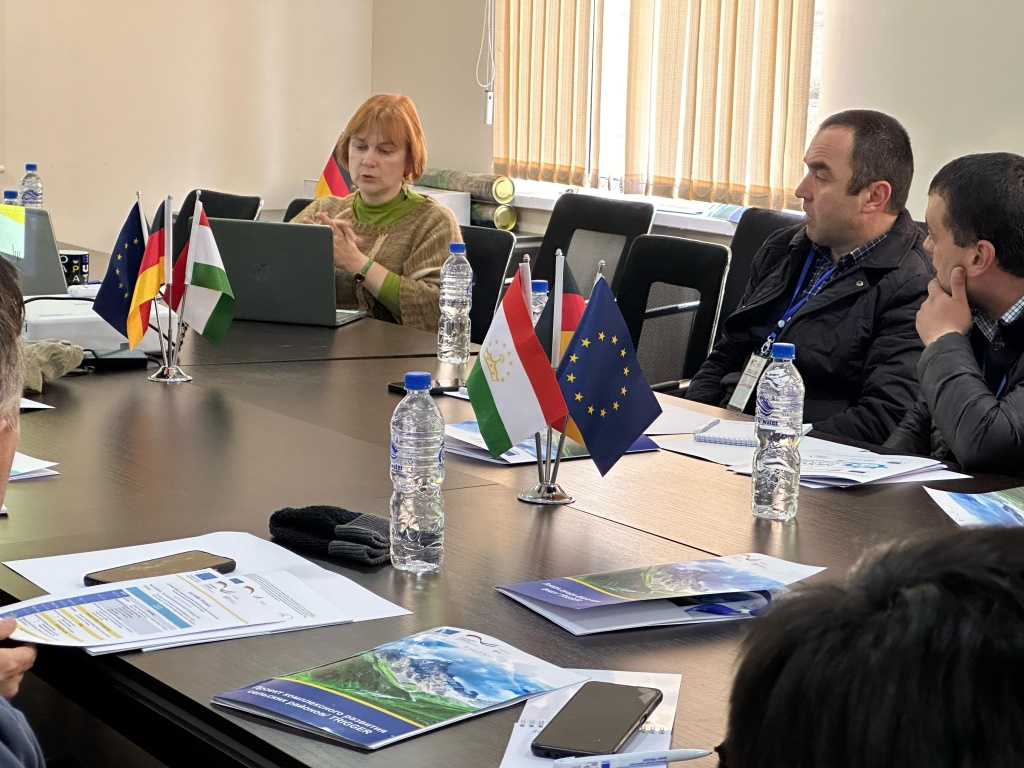riverbp
Community of Practice / News
CAREC continues to promote the Nexus approach in Central Asia: Zarafshan River Basin is in focus
Ayni, Tajikistan – Experts from the Regional Environmental Center for Central Asia (CAREC) acted as trainers on the Water-Energy-Food interconnection approach (WEP Nexus) for representatives of the Zarafshan River Basin Council. The training was held within the framework of the Integrated Rural Development Project/TRIGGER, co-funded by the European Union (EU) and the German Federal Ministry for Economic Cooperation and Development (BMZ), implemented in consortium with the German Agency for International Cooperation (GIZ), GFA Consulting Group and HELVETAS.
35 representatives of basin councils discussed the basics of the interconnections between the sectors, the reasons for their interdependence, examples of synergies and trade-offs, and examples of the application of the Nexus approach in Central Asia. For the first time, the WEFE Nexus training was conducted on the level of the local river basin.

“The intersectoral approach does not offer completely new views and actions. In theory, everyone understands the impact of their decisions leading to changes in the use of resources on other consumers of these resources. But in practice, we are choosing the same pathways - we plan our actions without taking into account the interconnections and plans of our colleagues. By helping basin council staff understand the Nexus approach and how it can be applied, we hope to optimize practices and reduce losses from uncoordinated actions. We are very grateful to the IRDP/TRIGGER project team for the opportunity to work with the Zarafshan River Basin Council members,” said Ludmila Kiktenko, Environmental Management Program Manager, CAREC.
The practical part of the training included interactive modeling of the Nexus approach (Nexus game), where participants tried on the roles of different participants in the public administration process responsible for economic development, food, water, energy security and social stability, as well as the roles of other participants in the process that ensure inflows of financing, transparency of actions and protection of the interests of people and ecosystems.

“Achieving harmonious management of water, energy and food resources is the main goal of the Nexus approach. The Nexus game is a tool that in a playful way helps to see the big picture of the interaction of countries and sectors, and their dependence on natural conditions and formats of cooperation,” said Zamira Zholdaskyzy, Coordinator for the development of the Community of Practice and the Network of Academic Societies, CAREC.
Thus by regulating the development of their territories, the members of the Zarafshan River Basin Council became convinced of the need for intersectoral cooperation, compromises and negotiations.


Brief reference
The Nexus Training was created by the Regional Nexus Dialogues Programme jointly funded by the EU and BMZ, in cooperation with the independent think tank Adelphi in 2022 in order to promote the implementation of the WEF Nexus approach worldwide. The training consists of 3 modules, which contain theoretical materials and practical exercises, cases. The interactive Nexus Simulation (Nexus Game) is also played as part of the training.
The Nexus Simulation was developed by the Centre for Systems Solutions in collaboration with the International Institute for Applied Systems Analysis and the “Sustainable Energy for All” Initiative. The history of its implementation in the Central Asian region began in 2018 within the framework of the EU project "Nexus Dialogue in Central Asia" implemented by CAREC. The game represents a facilitated process of playing 5 different scenarios for developing the territories upstream and downstream while addressing water needs of population, industry and agriculture and taking into account climate change challenges. Currently, the Nexus Game is actively promoted by CAREC in universities, academies, basin organizations and media in Central Asia with with funding from the EU and USAID.